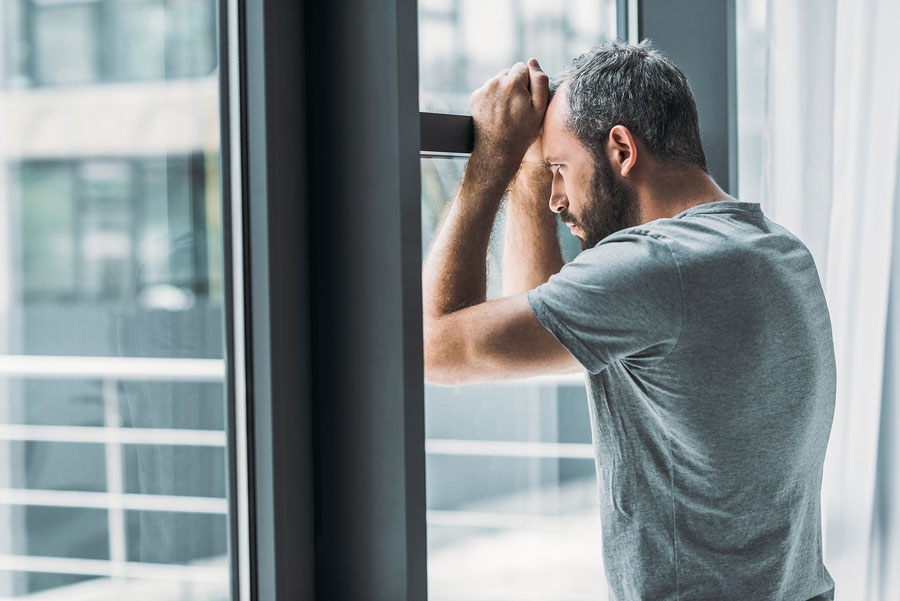
“A crisis on top of a crisis.” That’s the headline of a recent article[1] in a West Virginia newspaper, describing the effect of the COVID-19 pandemic on people already dealing with substance use disorder.
As Hans Morefield, CHESS Health CEO, has stated, “Social isolation is extremely dangerous to those in recovery and a leading contributor to relapse.”
The social distancing and quarantine orders in place across the land are effective in slowing the spread of coronavirus, but the destructive consequence is that they unravel the very support structure that people in recovery depend on. This can result in
- Isolation from a supportive peer group
- Loss of contact with counselors, mentors, coaches and therapists
- Sudden scarcity of alternative activities including exercise, and safe social activity
- Frustration and depression resulting from loneliness and social distance
- Fear of relapse, sometimes leading to actual relapse
In a recent Nashville Tennessean article[2], Jay Crosson, CEO of the Cumberland Heights rehab center, says that addiction “…thrives in isolation, and we recover in community… In the age of coronavirus, (addiction) doesn’t stop. It’s always out there.”
For people who depend on Medication Assisted Treatment (MAT), these restrictions can add up to a particularly galling dissonance. Emma, who previously attended Boston-area Alcoholics Anonymous meetings and a support group at her methadone clinic, is quoted in an article in Kaiser Health News[3]: “Maybe I’m old fashioned, but the whole point of going to a meeting is to be around people and be social and feel connected, and I’d be totally missing that if I did it online.”
Even worse, while restricted from in-person meetings with counselors, mentors or support groups, many people in MAT programs are still forced to risk infection by waiting in line to receive methadone.
Luckily, the CDC is adapting to the epidemic by releasing new recommendations for substance use treatment and therapy. As reported by Substance Abuse and Mental Health Services Administration (SAMHSA)[4],
“. . . in these extraordinary times of risk of viral infection, it is recommended that intensive outpatient treatment services be utilized whenever possible.”
CDC has released guidance on the expanded use of telehealth services. SAMHSA strongly recommends the use of telehealth and/or telephonic services to provide evaluation and treatment of patients. These resources can be used for initial evaluations including evaluations for consideration of the use of buprenorphine products to treat opioid use disorder. Further, these resources can be used to implement individual or group therapies such as evidence-based interventions including cognitive behavioral therapy for mental and/or substance use disorders.
While those in recovery await the full implementation of these changes, here’s some coping advice from the Tennessean article:
- Check websites of 12-step programs to locate and join online meetings.
- Phone a close friend or relative at least once a day to check-in and chat
- Create private online meetings of people with whom you feel comfortable being vulnerable and authentic
Meanwhile, we wish everyone in substance use recovery the strength, courage and creativity to stay safe and sober during these unprecedented times. A brighter day is coming, even if we can’t yet say when.
Evidence-based Programs and Practices (NREPP), the Journal of Substance Abuse and the Surgeon General. For more information, visit www.chess.health.
[1] Erin Beck, “It’s Going to Be Tragic.” W.Va. addiction experts predict a crisis on top of a crisis
Register-Herald, Beckley WV, April 2, 2020
https://www.register-herald.com/health/its-going-to-be-tragic-w-va-addiction-experts-predict-a-crisis-on-top-of/article_b218ce08-f852-5a5f-9b54-bd7fa26942d4.html
[2] Brad Schmitt, Tips for people with addiction to stay connected to recovery through COVID-19
Nashville Tennessean
[3] Addiction Is ‘A Disease Of Isolation’ — So Pandemic Puts Recovery At Risk
Kaiser Health News
https://khn.org/news/addiction-is-a-disease-of-isolation-so-pandemic-puts-recovery-at-risk/
[4] Considerations for the Care and Treatment of Mental and Substance Use Disorders in the COVID-19 Epidemic
SAMHSA, March 20, 2020
